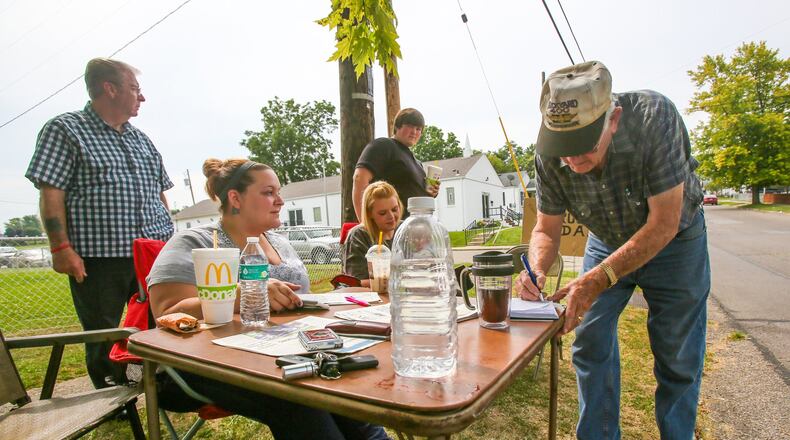1. No Drugs Today
Pastor Dennis Matheny, 69, felt the drug activity in his Hamilton Parkamo Avenue neighborhood had grown so out of control that he took a “No Drugs Today” message to the drug dealers and addicts.
MORE: Hamilton grandfather’s protest of ‘No Drugs Today’ draws praise
He sat a table in front of his home with the message on a placard, as he was joined by hundreds of neighbors and others, including Police Chief Craig Bucheit.
2. Meet with police
Matheny’s activism led to a neighborhood meeting last week with the Hamilton Police Department.
From that meeting, Bucheit said that an officer will become a liaison in the Parkamo neighborhood and will be responding to information provided by residents. He advised the crowd to call 911 if there is an issue with public intoxication.
3. Form a neighborhood watch
Bucheit said that homeowners have a right to legally protect themselves, but cautioned against a vigilante approach.
Instead he asked that residents use a neighborhood watch approach that he said will get underway immediately in the Parkamo neighborhood.
4. More screening by landlords
Several landlords have expressed concern about how to evict drug dealers or addicts from property they own.
MORE: Hamilton 'No Drugs Today' rally sends tough message
“We do have tools with ordinances that will help with evictions, but we need landlords also to be more mindful now when screening,” Bucheit said. “We can work together to make a difference.”
5. Follow-up with addicts
Dr. Scott Rasmus, executive director of the Butler County Mental Health & Addiction Recovery Services Board, said he plans to meet with the Hamilton Police Department to discuss the implementation of a data integration system that will track overdoses from EMS runs.
Rasmus said he hopes to use the information to get treatment for addicts and to get them off the streets.
About the Author
